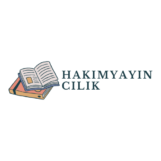I’ve always believed that everyone has a story to tell. Whether you’re dreaming of writing the next bestseller or simply want to express yourself through words creative writing classes for adults can unlock your hidden potential. These structured learning environments provide the perfect space to develop your craft and connect with fellow aspiring writers.
As a writing instructor I’ve seen countless adults transform their raw ideas into polished pieces through dedicated learning and practice. From mastering the basics of storytelling to exploring different genres these classes offer something for writers at every level. The best part? You’ll find options to fit any schedule or learning style – from local community college courses to online workshops that you can complete from the comfort of your home.
Key Takeaways
- Creative writing classes provide structured environments for adults to develop their writing skills while connecting with fellow writers and receiving expert guidance
- These courses offer various formats including fiction workshops, poetry classes, and memoir writing, with options for both online and in-person learning to suit different schedules
- Students can expect regular writing exercises, peer review sessions, and constructive feedback that helps build confidence and develop a unique creative voice
- Costs typically range from $200-$800 for community college courses to $1,000+ at private institutions, with time commitments of 6-8 hours per week
- Key skills taught include character development, dialogue writing, story structure, and plot building through practical exercises and targeted instruction
Creative Writing Classes for Adults
Creative writing classes offer transformative experiences that extend beyond learning to write stories or poems. These structured learning environments create opportunities for meaningful personal development through artistic expression.
Personal Growth and Self-Expression
Creative writing classes provide a dedicated space for adults to explore their inner thoughts through written expression. Students discover new perspectives by examining their experiences through different literary techniques like metaphor, imagery and character development. I’ve observed participants process complex emotions, reflect on life events and gain clarity about their personal narratives through guided writing exercises. The classroom setting encourages vulnerability in sharing work while maintaining professional boundaries.
Building Confidence as a Writer
Structured feedback and consistent practice in writing classes help adults develop a strong creative voice. I guide students to:
- Master fundamental writing techniques through targeted exercises
- Receive constructive critique from experienced instructors
- Share work with supportive peer groups
- Complete polished pieces for their portfolios
- Learn to assess their work objectively
- Develop revision strategies for improvement
The workshop environment allows writers to take calculated risks with their work while building technical skills. Regular exposure to different writing styles expands their creative range and strengthens their unique voice. As confidence grows, many students progress from hesitant drafts to submitting work for publication or pursuing additional writing opportunities.
Types of Creative Writing Classes
Creative writing classes encompass diverse formats designed to develop specific writing skills. Each class type focuses on distinct elements of storytelling craft while providing targeted instruction for different genres.
Fiction Writing Workshops
Fiction workshops center on crafting compelling narratives through character development plot construction. Students learn essential techniques like world-building dialogue writing scene structure. The workshop format includes:
- Reading peer manuscripts to analyze narrative techniques
- Practicing point-of-view exercises through character sketches
- Developing story outlines using plot structure frameworks
- Writing short stories with focused feedback sessions
Poetry and Verse Classes
Poetry classes explore the artistry of language through structured verse forms meter rhythm. The curriculum covers:
- Traditional poetic forms like sonnets haiku villanelles
- Modern free verse techniques experimental structures
- Sound devices including alliteration assonance rhyme
- Image development through metaphor symbolism
- Performance aspects of spoken word poetry
- Memory mining exercises to uncover significant moments
- Timeline creation for structuring life stories
- Scene construction using sensory details
- Narrative distance techniques for perspective
- Ethics of writing about real people events
| Class Type | Primary Focus | Common Assignments |
|---|---|---|
| Fiction | Plot Character | Short Stories |
| Poetry | Language Form | Verse Collections |
| Memoir | Personal Experience | Life Narratives |
What to Expect in Adult Writing Courses
Adult writing courses combine structured learning with practical application through weekly assignments, peer feedback sessions and instructor guidance. The curriculum focuses on developing fundamental writing skills while nurturing individual creativity.
Writing Exercises and Assignments
Writing exercises range from 10-minute prompts to 2,500-word short stories, building skills incrementally throughout the course. I assign weekly writing tasks that include:
- Creating character sketches based on observed behaviors, mannerisms or dialogue
- Crafting detailed scene descriptions using sensory details
- Writing dialogue exchanges between multiple characters
- Developing story outlines with clear narrative arcs
- Revising drafts based on specific technical elements like point of view or pacing
Peer Review Sessions
Peer review workshops occur every 2-3 weeks, providing structured feedback on student manuscripts. The review process includes:
- Reading 3-4 peer manuscripts before each workshop
- Providing written comments focusing on specific craft elements
- Participating in guided group discussions about each piece
- Learning to give constructive criticism using workshop guidelines
- Receiving detailed feedback from 4-5 classmates on submitted work
| Review Component | Time Allocation | Focus Areas |
|---|---|---|
| Written Feedback | 20 minutes | Plot, character, dialogue |
| Group Discussion | 15 minutes | Strengths, opportunities |
| Author Response | 5 minutes | Questions, clarification |
Finding the Right Writing Class
Selecting an appropriate creative writing class requires evaluating multiple factors to match your goals with available options. I’ve identified key considerations to help narrow down the choices based on learning environment preferences class levels.
Online vs In-Person Options
Online writing classes provide flexibility with 24/7 access to course materials through learning management systems like Canvas or Blackboard. I access recorded lectures virtual workshops from any location while participating in discussion boards forums for peer interaction. In-person classes offer face-to-face workshops at local venues such as:
- Community centers with weekly 2-hour evening sessions
- Libraries hosting monthly weekend writing circles
- University extension programs providing semester-long courses
- Independent bookstores organizing 6-8 week workshops
- Writing centers running intensive weekend seminars
Choosing the Best Program Level
Program levels align with writing experience proficiency to ensure appropriate skill development pacing. I categorize the standard progression levels as:
| Level | Description | Weekly Time Commitment |
|---|---|---|
| Beginner | Covers fundamentals story structure character development | 3-4 hours |
| Intermediate | Focuses on advanced techniques point of view dialogue | 4-6 hours |
| Advanced | Emphasizes manuscript completion publication preparation | 6-8 hours |
- Reading assignments from craft books literary works
- Writing exercises targeting specific skills
- Workshop critiques with detailed feedback
- One-on-one instructor consultations
- Portfolio development opportunities
- Publication submission guidance
Essential Skills Taught in Creative Writing Classes
Creative writing classes focus on developing foundational skills through structured exercises and targeted instruction. These skills form the core elements of compelling storytelling across various genres.
Character Development and Dialogue
Character development exercises teach techniques for creating memorable personalities with distinct traits, motivations and backstories. Students practice writing character sketches, monologues and personality profiles to flesh out their fictional cast. Dialogue exercises include:
- Writing realistic conversations between 2-3 characters
- Creating distinct voices through word choice and speech patterns
- Conveying character emotions through verbal and non-verbal cues
- Incorporating action beats and dialogue tags effectively
- Using subtext in conversations to reveal hidden meanings
Story Structure and Plot Building
Plot building instruction covers essential narrative frameworks and techniques for crafting engaging storylines. Key elements include:
- Outlining 3-act story structures with clear turning points
- Developing story arcs across 5-7 major plot points
- Creating narrative tension through rising action sequences
- Crafting effective story openings and satisfying endings
- Weaving subplots into the main narrative arc
- Balancing scene and summary to control pacing
- Using foreshadowing and flashbacks strategically
- Writing exercises (500-1000 words)
- Story analysis of published works
- Peer review workshops
- Revision techniques focused on specific elements
- Progressive assignments that combine multiple skills
Cost and Time Investment
Creative writing classes require strategic planning for both financial resources and scheduling commitments. Here’s a detailed breakdown of what to expect.
Tuition and Materials
Creative writing classes range from $200 to $800 per course at community colleges and $1,000+ at private institutions for 8-12 week sessions. Here’s a comprehensive cost overview:
| Expense Category | Typical Cost Range | Notes |
|---|---|---|
| Community College Course | $200-800 | Per 8-12 week session |
| Private Institution | $1,000-2,500 | Per semester |
| Online Workshops | $150-600 | Per 6-8 week course |
| Required Textbooks | $50-150 | Per course |
| Writing Software | $40-100 | One-time purchase |
Essential materials include:
- Writing software (Scrivener Microsoft Word Google Docs)
- Notebooks journals for writing exercises
- Style guides reference books for specific genres
- Cloud storage for manuscript backups
- Digital collaboration tools for peer review sessions
Time Management Tips
Effective time allocation transforms writing aspirations into completed manuscripts. Here’s my recommended weekly schedule:
- Block 2-3 hours for classroom instruction virtual meetings
- Reserve 4-6 hours for writing assignments exercises
- Dedicate 2 hours to reading peer manuscripts
- Set aside 1 hour for manuscript revision based on feedback
- Allocate 30 minutes for discussion board participation
- Schedule 1 hour for research reference material review
- Create writing schedules during peak productivity hours
- Use productivity apps to track writing progress
- Break large assignments into 30-minute segments
- Maintain separate folders for class materials drafts
- Set up automatic backups for written work
- Use mobile devices for quick writing sessions during breaks
Adult Classes
Creative writing classes for adults an invaluable opportunity to develop their storytelling skills in a structured and supportive environment. Through my experience as an instructor I’ve seen countless students transform from hesitant beginners into confident writers ready to share their stories with the world.
Whether you choose an online workshop or an in-person class the journey of learning creative writing will challenge and inspire you. I encourage you to take that first step and explore the writing programs available in your area. Your story deserves to be told and a creative writing class can give you the tools expertise and community you need to bring it to life.

